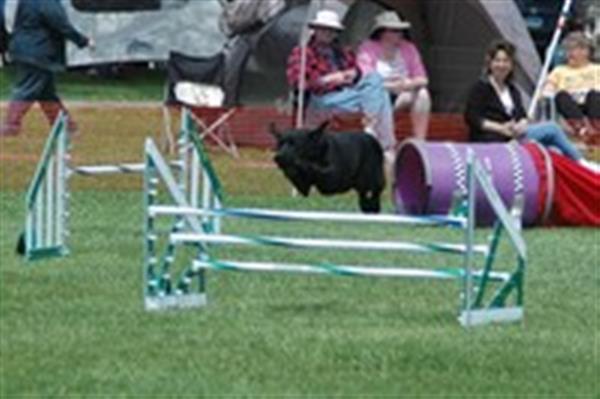Recommended Fun Reading
-
Books I find fun or interesting
(in no specific order)The Best American Science Writing Yearly Anthology
An excellent collection of how science/technology impact our lives on a daily basis in ways we do not realize.
The Best American Science and Nature Writing Yearly Anthology
An excellent collection of how science/technology impact our lives on a daily basis in ways we do not realize.
Einstein:His Life and Universe Walter Isaacson
An excellent biography about the most famous scientist of the past several hundred years. Reveals not only his brilliance, but his humanity.
Rocket Men: The epic story of the first men on the moon Craig Nelson
I believe the moon landings are one of, if not the, ultimate expression of humankinds ability to think, dream and problem solve. This book is an excellent telling of the tale of getting a man on the moon and returning him to earth and the odds that were overcome to do this.
Beyond Star Trek: Physics from Alien Invasions to the End of Time Lawrence M. Krauss
I like a good science fiction movie/book/TV show (sometimes I even like a bad science fiction movie). Professor Krauss (physics professor at Case Western University) dissects popular culture to show what is and isn’t possible based on our current knowledge.
A Short History of Nearly Everything Bill Bryson
A very readable review of how we know what we know about how we got here, in other words a short history of nearly everything.
American Prometheus: The Triumph and Tragedy of J. Robert Oppenheimer Kai Bird and Martin J. Sherwin
A very well written biography of the scientist who led the Manhattan Project.
The Making of the Atomic Bomb Richard Rhodes
Easily one of the more detailed, well written, histories of one of the most amazing engineering feats in human history. The level of detail is amazing.
Francis Crick: Discoverer of the Genetic Code Matt Ridley
A very concise biography of Sir Francis Crick.
Guesstimation: Solving the World’s Problems on the Back of a Cocktail Napkin
Lawrence Weinstein and John A Adams.
A way to learn how to approximate answers. Calculators, reference books and the internet not allowed.
The Ten Most Beautiful Experiments George Johnson
The author’s choice for the 10 best experiments of all time with the caveat the entire experiment must have been done by one person. Definitely subjective but does show the beauty of a well designed experiment.
The Canon: A Whirligig Tour of the Beautiful Basics of Science Natalie Angier
The author interviews a host of scientists and asks the question “ What do you wish everyone know about your field?”. A nice introduction to the basics of several branches of science.
Plato and a Platypus Walk into a Bar: Understanding Philosophy Through Jokes
Thomas Cathcart & Daniel Klein
Exactly what the title says. A very nice basic introduction to various schools of philosophy.
Aristotle and and Aadvark go to Washington: Understanding Political Doublespeak Through Philosophy and Jokes Thomas Cathcart & Daniel Klein
The authors use jokes and philosophy (see book above) to reveal how politicians and political pundits on all sides of the issues attempt to skew arguments on the issues.
Dune Frank Herbert
In my very biased somewhat limited opinion the best science fiction book ever written. The remainder of the series is nothing great but the first book covers history, ecology, sociology, warfare, religion in a thoughtful manner.
Outliers Malcolm Gladwell
The author argues, quite convincingly that success is a combination of opportunity and hard work and culture. He also shows how factors that hinder success are not an absolute but can be overcome within reason.
The World is Flat Thomas Friedman
The author points out how the world has shrunk and though there will be competition from other countries
(think China and India) he also maintains that the person who learns how to think will always have a fighting chance to make a living. An argument for learning how to learn for the 21st century. Also excellent arguments why we need to push for science/technology education and why the US needs to update its infrastructure.
The Harry Potter Series J.K. Rowling
Just a lot of fun in a well written, well imagined parallel world.
The Demon Haunted World Carl Sagan
Why People Believe Weird Things: Pseudoscience, Superstition, and other Confusions of our Time Michael Shermer
Don't Believe Everything You Think: The 6 Basic Mistakes We Make in Thinking Thomas Kida
Three good books explaining how scientific thinking and the scientific method works. They also point out how our flaws in thinking result not only in the proliferation of pseudoscience, holocaust denial but also the wasteful spending we engage in to buy products “proven to be scientifically valid”.
The Disappearing Spoon: And Other True Tales of Madness, Love, and the History of the World from the Periodic Table of the Elements Sam Kean
A very readable, entertaining “history” of all the elements in the Periodic Table of the Elements. Helps explain the intrinsic beauty of the Periodic Table.
Napoleon's Buttons: How 17 Molecules Changed History Penny LeCouteur and Jay Burreson
Exactly what the title says. The authors make a case for the 17 most influential chemicals in history to date in an easily readable history.
Steve Jobs Walter Isaacson
An authorized, well documented biography of Steve Jobs of Apple fame. Written by the author of the biography of Einstein referrenced above.
The Poisoner's Handbook: Murder and the Birth of Forensic Medicine in Jazz Age New York Deborah Blum
A fun history of the birth of the Forensic Science group in NYC, the first in the country.


